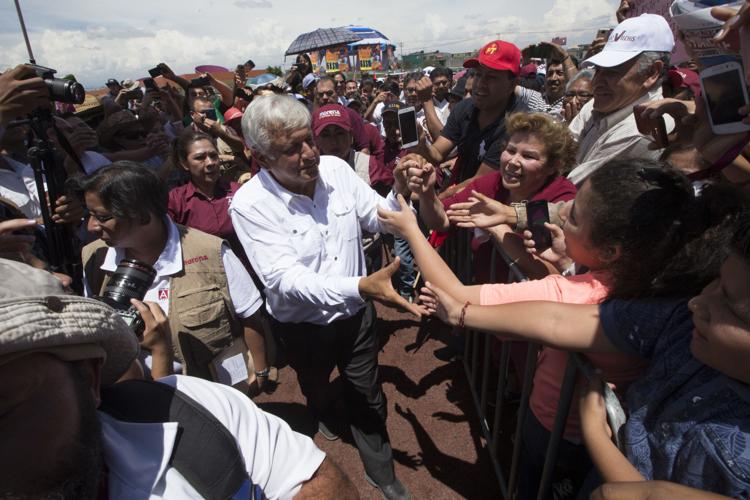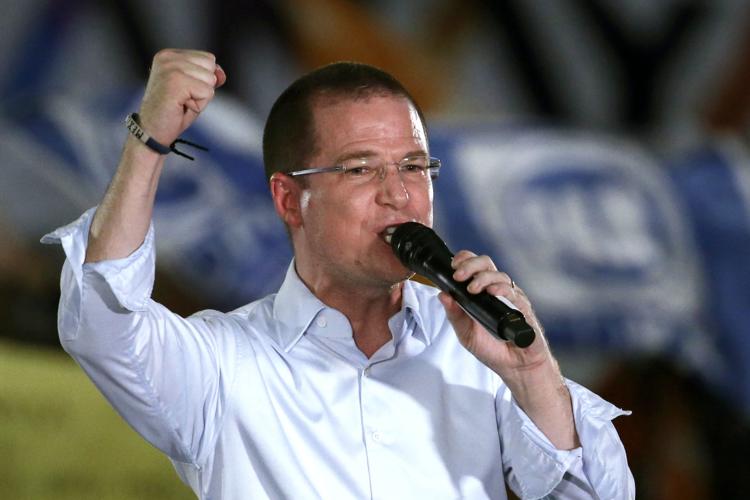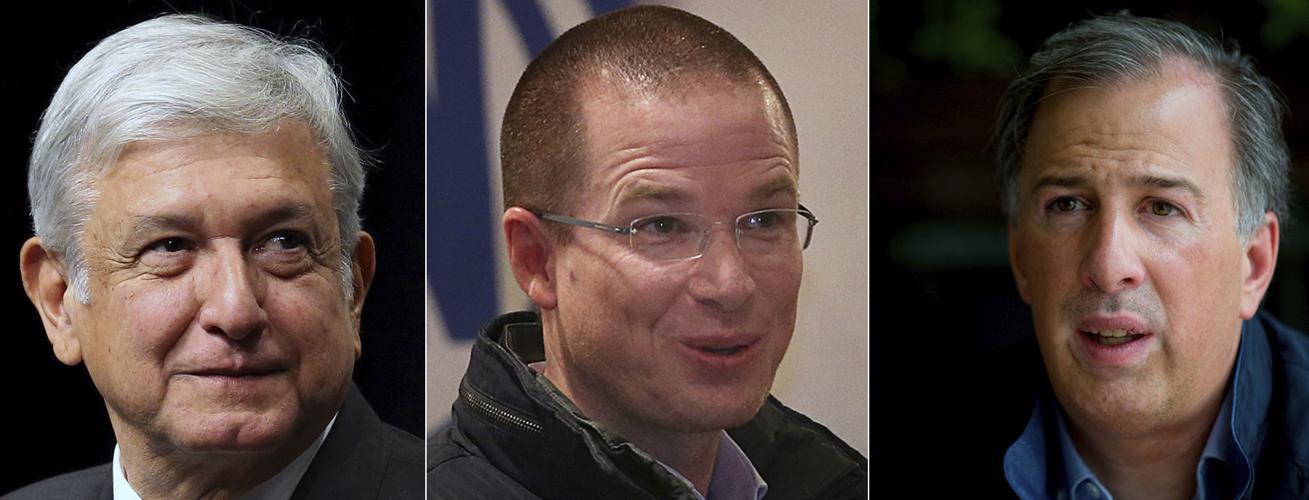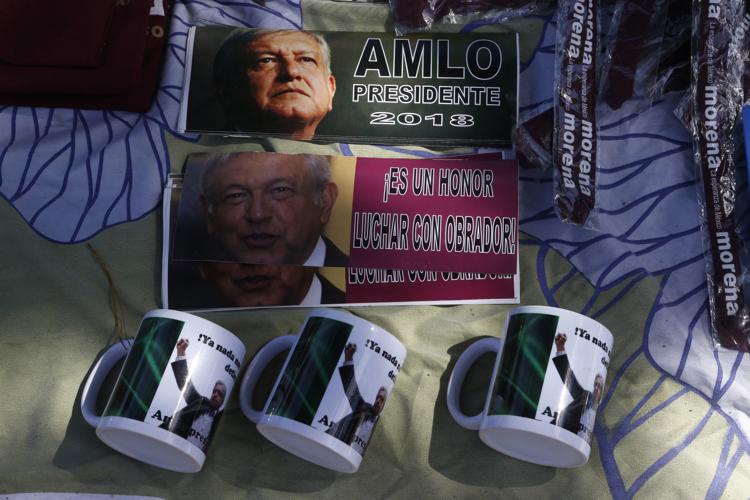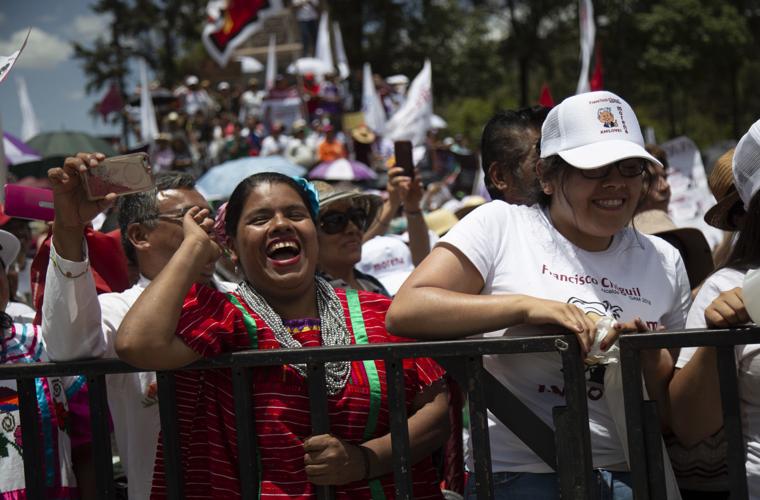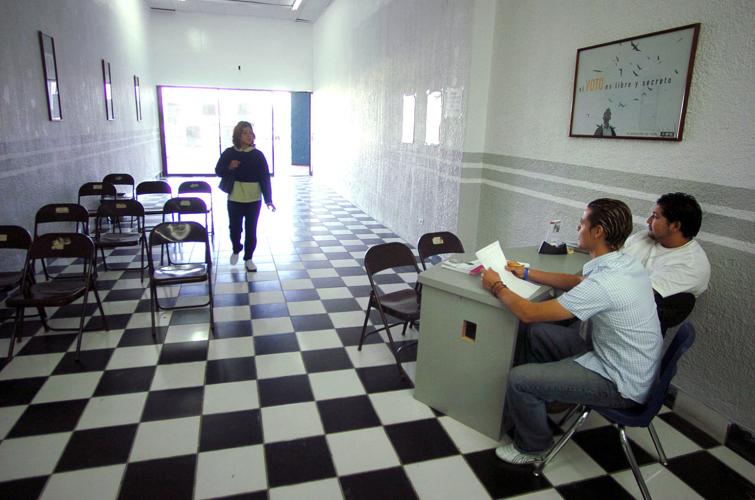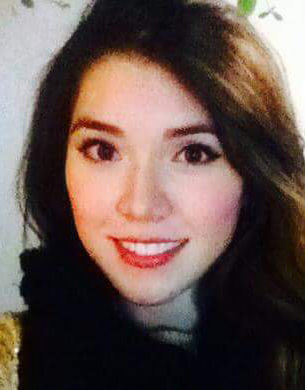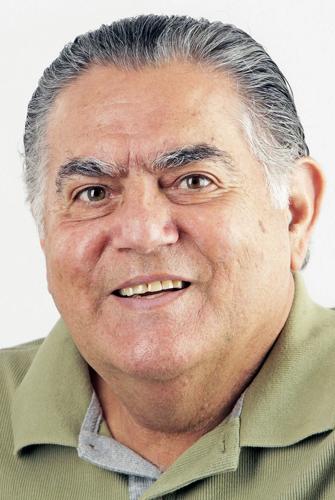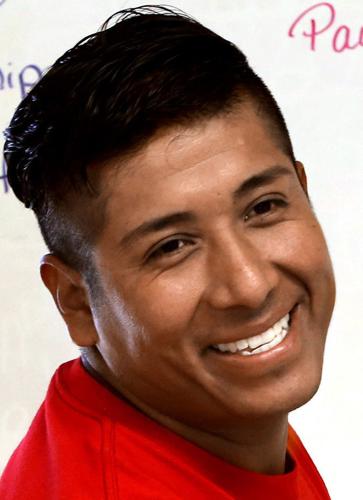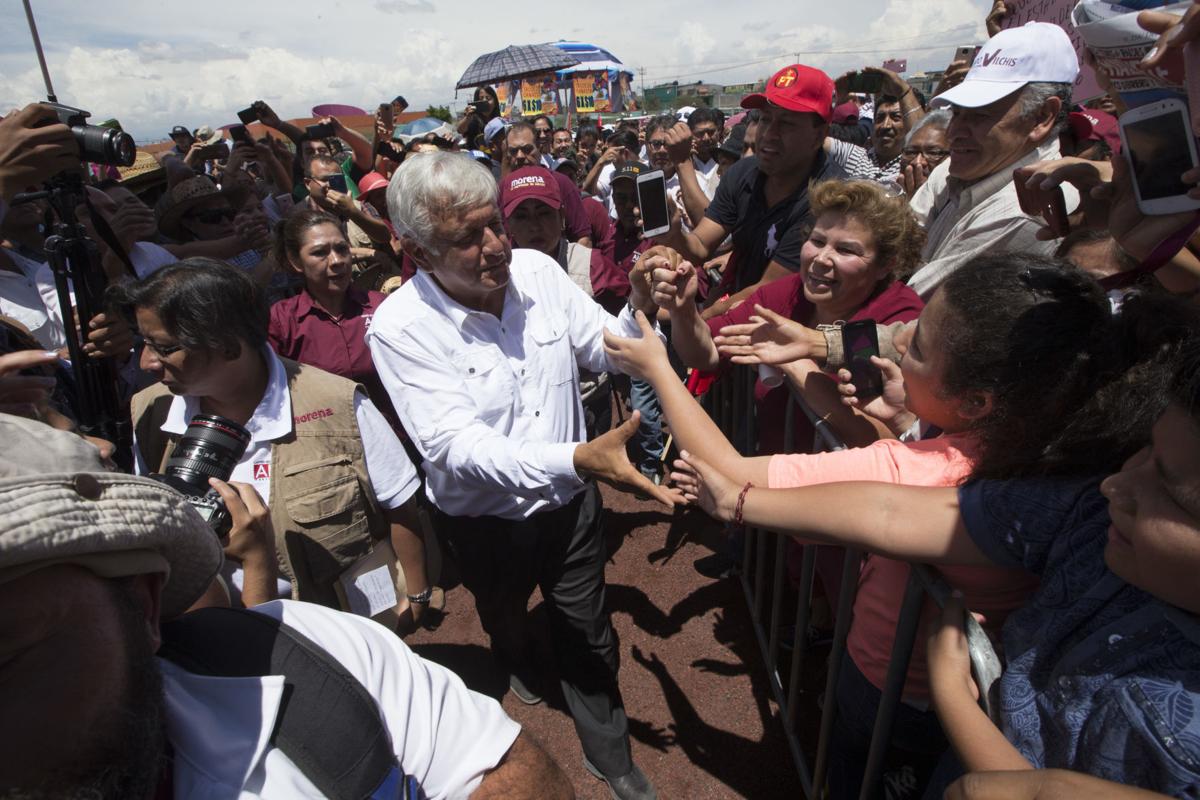If there’s one thing in common among Mexicans living abroad, it appears to be a desire for change in the upcoming elections — and for many that means supporting the leftist candidate, Andrés Manuel López Obrador.
“People are desperate,” said Claudia de Leon, a 25-year-old university graduate who migrated to Tucson from Sonora two years ago after she married.
“There’s no safety for young people, there are no opportunities,” she said. “I have so many friends with professional degrees who are working at American franchises such as McDonald’s and Dairy Queen.”

Claudia
de Leon
She supports López Obrador in the July 1 presidential election — not necessarily the man himself, but the hope he represents that things in Mexico can be different.
As of March 31, about 3,500 people registered to vote and obtain their voting card at the Mexican Consulate in Tucson. Overall, more than 181,000 people activated their voting card to cast their ballot from abroad, the vast majority in the United States.
While that’s up from previous elections, it’s still a fraction of the 85 million electorate in Mexico. In an election where López Obrador, from the Morena party, which stands for National Regeneration Movement, continues to hold a double-digit lead, that’s a drop in the bucket.

Presidential candidate Ricardo Anaya of the Forward for Mexico Coalition speaks to supporters during his campaign rally in Mexico City, Wednesday, June 13, 2018. Mexico will choose a new president on July 1.
Conservative Ricardo Anaya of the National Action Party, PAN, is the runner-up in current polls, followed by Jose Antonio Meade of the ruling Institutional Revolutionary Party, PRI; and independent candidate Jaime “El Bronco” Rodríguez.
Poverty, corruption, violence and the economy continue to be important issues for Mexican society. And Lopez-Obrador’s anti-establishment message resonates with many.
“It’s been too many years of theft and corruption that won’t get resolved in six years,” de Leon said, “but Mexico deserves something different. Whatever Mexico has been doing, hasn’t worked.”
This is a historic election, said Duncan Wood, director of the Mexico Institute at the Wilson Center, a nonpartisan research and policy forum on global issues.
“We are looking at somebody who is openly left wing. He would be the first left-wing or nationalist president in Mexico,” Wood said.
There is also a large number of open seats up for election across Mexico, which creates a possibility of radical change for the country, he said.
This is the most important election in the U.S. in 2018, Wood tells people.
Both countries are so deeply integrated in terms of the economy, energy, trade, migration and homeland security that whoever gets elected, he said, “will have a far-reaching impact upon daily lives in the United States.”

Ramiro Genaro Torrez, 20, right, and Francisco Calderon Ferreyra, 19, with the Mexican Federal Electoral Institute wait for voters in an empty registration center set up to register local residents as well as Mexicans living abroad on in this Nov. 17, 2005 file photo in Tijuana, Mexico.
Registration
easier this year
The low voting numbers from abroad are due to a combination of a cumbersome process and a lack of trust in the system.
Mexico has one of the most restrictive processes in the world for voting from outside of its borders, Michael A. Paarlberg, an assistant professor of political science at Virginia Commonwealth University, wrote in a post for the Wilson Center.
In 2006, close to 33,000 Mexicans voted from abroad, a number that rose to nearly 41,000 in 2012.
This is the first election where people have been able to register at local consulates. Before, they had to travel back to Mexico to register. But while almost 670,000 Mexicans living outside of the country registered to vote for the upcoming election, only 181,256 activated the government electoral identification cards that allow them to cast ballots.
Out of an estimated 4.2 million voting-age Mexican citizens residing abroad, Paarlberg wrote, this would be a turnout rate of less than 5 percent.
Tony Ortiz, a Tucson activist and U.S. resident of more than a decade, has been following the presidential election closely. He’s watched the three Mexican debates and often talks with fellow Mexicans about what’s going on.

Tony Ortiz
Yet, he’s not going to vote.
“I said I didn’t have time, that I had to work, but honestly, that’s just an excuse,” he said, and the same goes for the dozens of Mexicans he knows in Tucson who aren’t voting either.
“It’s all part of that cancer that everything will be the same in Mexico,” he said. “I’m discouraged to see the same old politics that have always existed in Mexico; different parties with the same candidates.”
Most people he talks with, he said, are doubtful 64-year-old López Obrador will win despite his huge lead, as they feel the election will be rigged.
Ortiz leans toward López Obrador because he’s among those who want change. But he is also aware that for real change to happen in Mexico, he said, it will require time — more than the six-year term the president is limited to.
“The Mexican and Mexican-American community is very diverse,” said Irasema Coronado, a political science professor at the University of Texas at El Paso and a University of Arizona graduate.
“You have people living in the U.S. for a long time who have never participated in Mexican elections,” she said. “Some would tell you, ‘We voted with our feet when we left.’”
And then there are also more recent immigrants who are professionals who left as a result of limited opportunities. They follow Mexican politics very carefully and are in tune with them, Coronado said, but may still feel alienated from the Mexican system.

Supporters of presidential candidate Andres Manuel Lopez Obrador, known as AMLO, attend his campaign rally in Mexico City, Sunday, June 3, 2018. Mexico will hold general elections on July 1.
Despite moving from Sonora, de Leon said she still cares about what happens in Mexico and hopes to one day open her own solar energy company and do business across the border. But she didn’t figure out the voting process in time to cast her ballot from abroad.
Florencio Zaragoza, who first moved to Tucson as a graduate student at the UA in 1988, said he sees it as his civil duty to participate in elections on both sides of the border.
“I’m up to date about what’s happening in Mexico just as I am about what’s going on in the United States,” he said. “I’m bicultural and binational.”
Even when Mexicans living in the United States are not voting, the interest is there, Coronado said, especially in border states such as Arizona.
Mexico is Arizona’s largest trading partner, the Arizona-Mexico Commission reported. The state’s two-way trade with Mexico was $15.4 billion in 2017.
Visitors from Mexico contribute between 60 percent and 70 percent of sales tax revenue in border communities.
The automotive industry in Arizona and Sonora produces 1,488 vehicles daily, supporting more 50,600 employees.
About 1 in 10 Mexicans live outside of Mexico, the vast majority in the United States. In 2017, they sent nearly $29 billion back in remittances.
“There’s a huge interest from the U.S. business community, from the U.S. government, simply because of the unknown factors of how López Obrador would be,” said the Wilson Center’s Wood.
“Whether or not we have a friendly government in Mexico matters a big deal,” he said, “and López Obrador, of the three top candidates, is the one least likely to be enthusiastic of working with the U.S.”

López Obrador, left, of the Morena party, would become the first left-wing or nationalist president in Mexico if he defeats Ricardo Anaya, center, of the National Action Party, and Jose Antonio Meade, of the Institutional Revolutionary Party.
“Professional politician” leaves doubts
The candidates have also started to take note of Mexicans living in the U.S. who might vote.
Anaya, 39, met with business owners in Los Angeles and promised to defend DACA, the U.S. program that protects some people who arrived to the U.S. as youths and are undocumented. He did so before the official start of the campaign season, since it’s still illegal to campaign outside of Mexico.
López Obrador visited Phoenix in March 2017, where he denounced President Trump’s policies and rhetoric and promised to provide lawyers to those facing deportation. He did not visit the U.S. in 2006, when he lost the election by 244,000 votes.
But for Zaragoza, what López Obrador says is not enough.

Florencio
Zaragoza
Zaragoza ran as a candidate for the Chamber of Deputies in the mid-1990s as a representative of the Party of the Democratic Revolution, PRD, when López Obrador was the national leader.
“But the Manuel López Obrador I met 21 years ago is a very different man than the one who is running today,” he said.
Before, Zaragoza said, he guided himself by traditional leftist principles. “Now, he keeps talking about those principles, but his actions say otherwise.”
“His party ended up being a collage of businessmen, corrupt leaders, people from all currents,” he said, “I don’t know what direction the country would take (if he wins).”
After watching the last presidential debate, Zaragoza decided to support Anaya. He likes his economic policies, his support of the indigenous population and his commitment to fight corruption and violence with the rule of law, he said.
In the 2006 and 2012 elections, Mexicans abroad voted overwhelmingly for the PAN against the ruling PRI.
Economic issues resonate with other Mexicans living in Tucson, and there are doubts about how much change López Obrador will really bring to the country.

Campaign merchandise of presidential candidate Andres Manuel Lopez Obrador of the MORENA party is on sale during a campaign rally in Ecatepec, Mexico, Sunday, June 17, 2018. Mexico will choose a new president in general elections on July 1.
He’s a professional politician, said Wood. “He’s been running for president, essentially since 2000.”
López Obrador has become one of the most recognized faces and names in Mexican society and “he’s somebody who made it his life goal to become president of Mexico,” he said.
He began his political career in 1976 as a member of PRI and joined the PRD in 1989. About 11 years later, he was elected head of government of Mexico City.
Through the years, he’s learned the importance of campaigning, negotiating and putting together coalitions such as the one he has under his Morena party, which after the 2012 elections he transformed from a movement to a party.
While it has led to an inclusive coalition, it also means that he has people from all kinds of political persuasions, from far left to conservative, Wood said, which is what dissuades Zaragoza.
For Wood, this can mean that if López Obrador wins, he will at the end turn out to be a centrist president. “He sells fundamental change, but when you analyze the policies, they are not radical at all.”
Still, a recent poll conducted by University of California researchers found López Obrador has a big lead among voting-age Mexican nationals living in the U.S.
And eight days ahead of the election, López Obrador has a 94 percent certainty of winning on July 1, the Wilson Center estimates. He’s ahead of Anaya by 21 percentage points and has a 29 percentage point advantage over Meade in the polls.
“In the long term, the real significance of this historical election will be less about what happens over the next six years, but more about how is Mexican politics changing, shifting,” Wood said. “Is it moving into something new or going back?”


